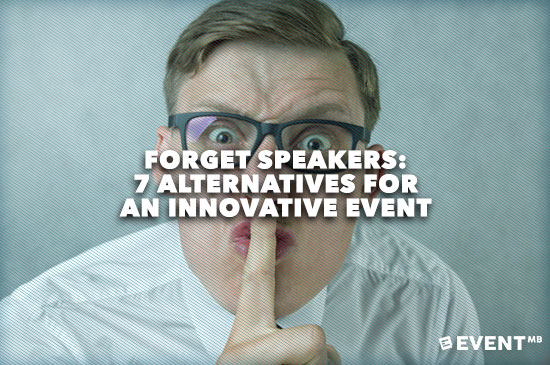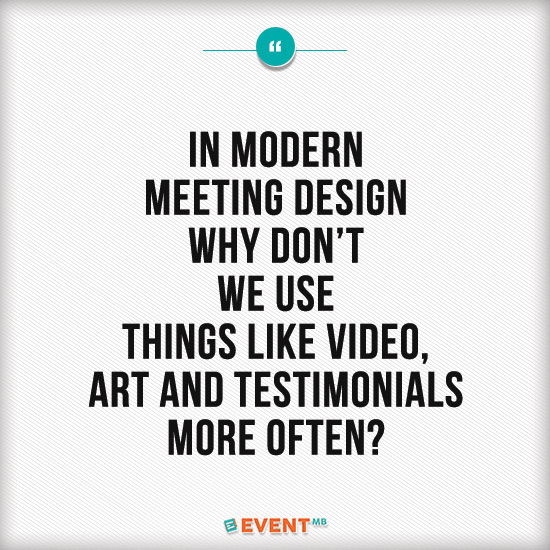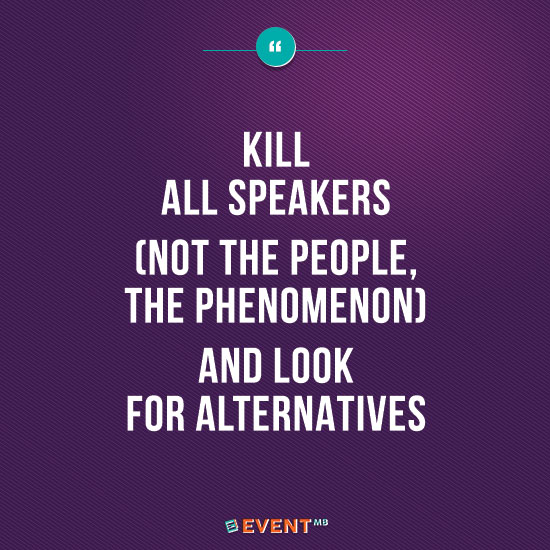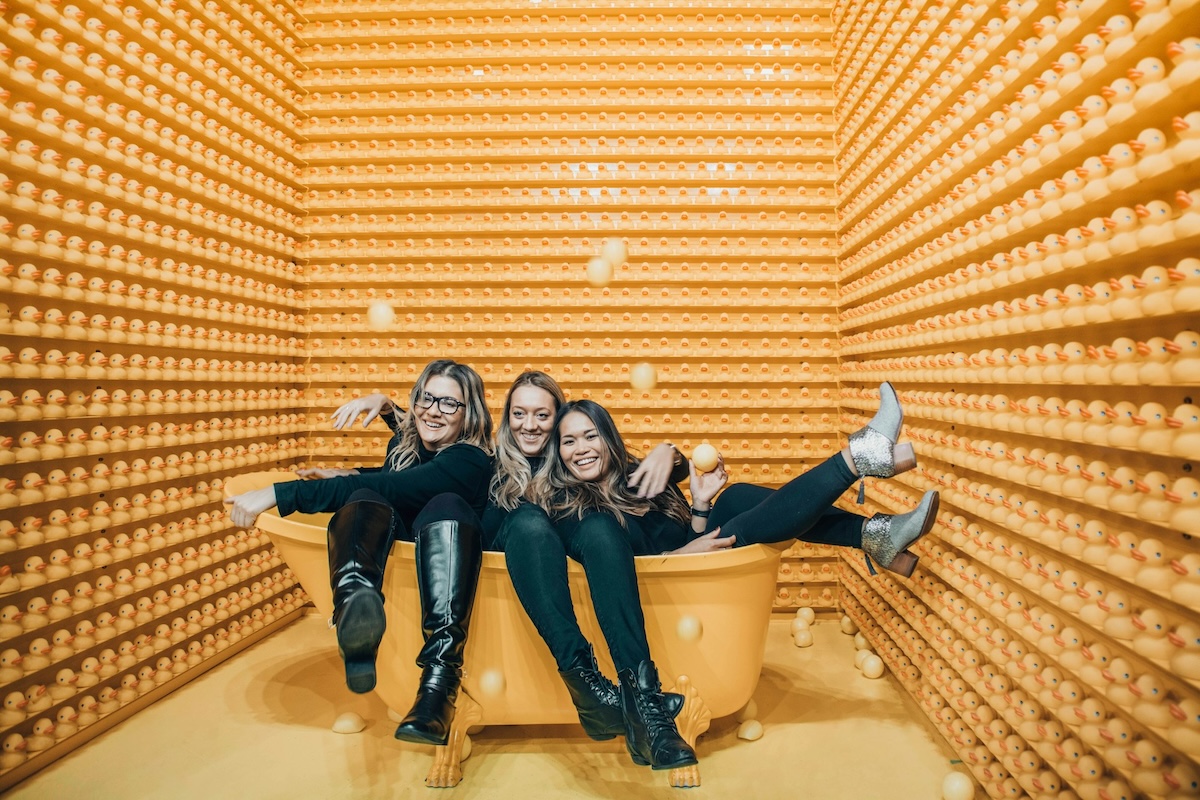Skift Take
Meetings are changing, yet speakers are still the main ingredient of every conference. In this modern age of meeting design why don’t we use things like video, art and testimonials more often? Here are 7 potentially brilliant alternatives to speakers, worth considering for your next event.
Participants demand – for good reasons – more use of interaction, wisdom of the crowd and co-creation. This in itself is a very good reason to kill all speakers (not the people, the phenomenon) and look for alternatives. Here are some options you should seriously consider.
1. Participants
Times are changing and we value the help of peers more than that of authority, these days. So why have someone on stage telling participants what to do, if they can tell each other? Think of alternative formats, where participants work in smaller groups, talk directly to each other, or delegates are invited on stage spontaneously to be interviewed or join a panel.
And why have someone give information, tell ‘the truth’ about a topic or make decisions, when the combined wisdom of the crowd is much bigger than that of a speaker? Get people involved in providing content, debating, taking decisions. Do it human to human, or make use of the ever more intelligent eventtech around.
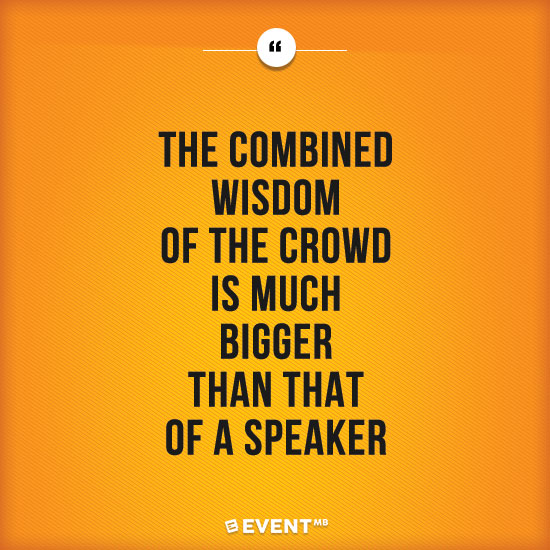
2. Video
Why does a speaker have to be on stage, if telling his story via a compelling video is much more attractive and to the point? Let’s face it, we are not all gifted speakers. Having the lesser gods interviewed and edited works wonders. Adding voice-over will help summarize. Adding other footage or even animation will make it so much easier to digest.
Storytelling is important, we know. But isn’t ‘show, don’t tell’ just as crucial? A video can combine the two, like no person can. With the right script and maybe some dramatisation, or actors even, the important message will come to life.
Finally, participants views can be incorporated, by interviewing them too. Different perspectives or opinions can be introduced, supporting the meeting design in a controlled, effective way.
3. Testimonials
Too often, speakers tell stories about situations they haven’t been in themselves. They share their view on a topic, but have no personal experience of it. It is much more powerful to hear from the subjects themselves. So, get them on stage to tell their story. It will make the participants experience the real problem and get them connected to the real world, outside the conference room.
And even if these ‘experts by experience’ are not brilliant speakers, that is not a problem. The power of their contribution is priceless anyway. And there are alternative ways to make them shine; the moderator can interview them, actors can present their statement, a short video documentary can be shown, and so on.
4. Art
The art of speaking is only one of many. Good meeting design and effective learning prosper by alternation. Why not have music or dance tell a story? Why not prove a point or offer an experience by acting? It works in the theatre, the cinema or the rock concert. So why shouldn’t it on the conference stage?
You can put professional dancers, actors or musicians on stage, or have the delegates engage in these activities. Just to give one example: why not think of playback theatre, where the participants direct the actors on stage, while re-enacting real life situations?
5. Workshops
Every parent knows: nothing beats finding out for yourself. No matter how hard you try telling your children about life, they will have to find their own way. Workshops are perfect ways of doing so, granting participants the opportunity to experience, gain information, reach decisions and network.
A fair warning though: beware of the danger of putting another speaker to lead the workshop, turning it into a one man show anyway. A workshop should do exactly what it says: to have participants work!
6. Moderators/Facilitators
There are two ways of helping people find their way in life and business: by directing them or by helping them do it themselves.
Modern parenthood is probably exemplary for meetings nowadays: rather then telling a child what to do and think, parents these days listen to their offspring and help them find their own way. This is exactly what a moderator/facilitator can do; provide insight or learning by asking questions and offering a helpful process, rather then by telling ‘how things should be done’.
7. Good Speakers
And finally the alternative for speakers is… other speakers. Get rid of the poor, boring performers and find the ones that actually do not speak, but interact and involve their audience.
Great speakers can still be of huge added value to any meeting design. Unfortunately though, some speakers believe themselves more important than the meeting itself and alienate their listeners. Don’t stand for standardized and well-worn presentations from arrogant or lazy speakers – demand more #eventprofs!
In Conclusion
If you are looking for a real experience that will take you and your participants to the next level, by all means look for great speakers. But be open to alternatives and let your meeting design be enriched by co-creation, workshops, art, video, testimonials and moderators/facilitators. It will have a huge impact on your meetings.
